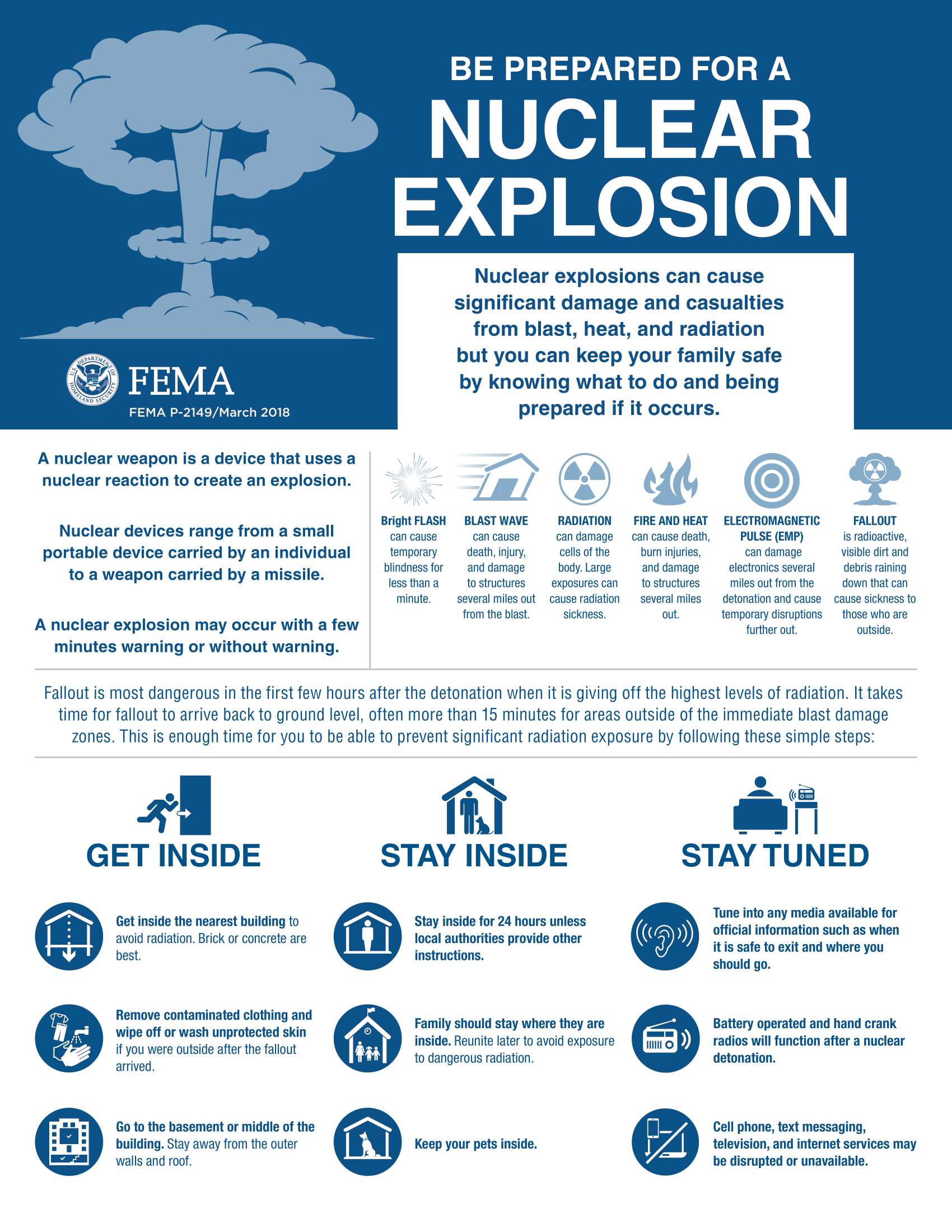How to Prepare for a Nuclear Bomb – Essential Disaster Preparedness Tips
In today’s uncertain world, it’s essential to be prepared for any type of disaster. While the possibility of a nuclear bomb attack may seem unlikely, it’s crucial to plan ahead and be ready for such a catastrophic event. By taking a few practical steps, you can significantly increase your chances of survival and minimize the impact of a nuclear bomb. In this blog post, we will guide you through essential disaster preparedness tips to help you and your family stay safe.
1. Educate Yourself:
Learn about nuclear bombs, how they work, and their potential effects. Familiarize yourself with terms such as blast radius, fallout, and radiation. Understand the difference between a nuclear bomb detonation’s immediate impact and the long-term effects of radiation exposure.
2. Create an Emergency Plan:
Develop a comprehensive plan that covers different scenarios, including knowing the nearest nuclear shelters or safe areas in your area. Establish communication protocols with your family members, designating a specific meeting place in case of separation during the attack. Practice your emergency plan regularly to ensure everyone understands their roles and responsibilities.
3. Build an Emergency Kit:
Put together a well-stocked emergency kit that includes essential supplies such as non-perishable food items, water, first aid supplies, and medications. Don’t forget to include a battery-powered radio, flashlights, extra batteries, and a whistle for signaling.
4. Secure Your Home:
Strengthen your home’s structural integrity by reinforcing doors and windows. Consider installing blast-resistant window film, which can help mitigate the effects of flying debris. Create a safe room in your house or identify the most sheltered areas where you can seek immediate protection.
5. Establish a Communication Plan:
During a nuclear bomb attack, communication systems may be disrupted. Designate a friend or family member who lives outside the immediate vicinity as a contact person. Inform them about your emergency plan, and make sure everyone in your family knows this point of contact.
6. Learn and Practice Decontamination Techniques:
Familiarize yourself with decontamination procedures to reduce the risk of radiation exposure. Learn how to remove outer clothing and wash your body properly to minimize radiation contamination. Keep a supply of disposable gloves and plastic bags for contaminated clothing disposal.
7. Stay Informed:
Keep yourself updated on emergency alerts and notifications from local authorities and government agencies. Install relevant mobile apps or sign up for emergency text alerts that provide real-time information about the situation in your area.
8. Stay Sheltered and Minimize Exposure:
In the event of a nuclear bomb attack, seek shelter immediately. Go indoors to an underground area or, if that’s not possible, find the most central place away from windows and outer walls. Stay inside until instructed otherwise by authorities, as fallout can be carried by wind currents for several hours or even days.
9. Aftermath Safety:
In the aftermath of a nuclear bomb detonation, avoid outdoor activities to minimize radiation exposure. If you must go outside, cover your mouth and nose with a mask or cloth to avoid inhaling radioactive particles. Follow instructions from authorities regarding food and water safety.
10. Seek Professional Help:
If you or anyone in your family experiences symptoms of radiation sickness such as nausea, vomiting, or dizziness, seek medical attention immediately. Contact emergency services or go to the nearest hospital for assistance.
Remember, being prepared is the key to survival during a nuclear bomb attack. While we hope such a situation never occurs, it’s vital to take proactive steps to protect yourself and your loved ones. By following these disaster preparedness tips, you can increase your chances of staying safe and handling the aftermath with confidence.
Disclaimer: The information provided in this blog post is for educational purposes only and should not substitute professional advice. It is essential to consult local authorities, experts, and reputable sources for further guidance on nuclear disaster preparedness.







